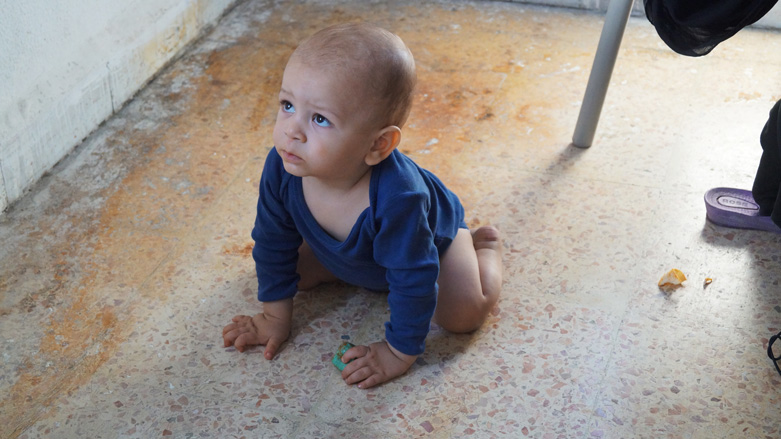US Syria withdrawal affects EU states' rulings on female ISIS members, children

ERBIL (Kurdistan 24) – A recent pair of European court rulings demonstrate the wide-ranging effects of the planned US withdraw of troops from Syria.
A Dutch court referenced the withdrawal as a significant factor on Wednesday in a decision to expedite the return of six female Dutch citizens accused of membership in the Islamic State and their children, now in the custody of Syrian Kurdish forces.
The judge’s decision stated that, if US support drops for the Kurdish forces, the balance of power could shift to the detriment of Kurds and therefore also negatively affect the women and children held by them.
“The court in Rotterdam has been quite clear about what it expects from the prosecutor and the Dutch minister of justice,” lawyer André Seebregts, who represents five of the six women, told Kurdistan 24.
He added, that the situation has become increasingly dire, ever since US President Donald Trump stated on Dec. 19 that he would pull US troops from Syria.
”That means that the Kurds who currently hold that region will probably not be able to hold on,” the lawyer said.
On Dec. 26, a court in Belgium used similar reasoning as it ordered the state to bring back six Belgian children, citing the present “emergency situation.”
Local Kurdish-backed authorities in the northeast of Syria have called on European governments to take back wives and children of Islamic State fighters. Until now, no European country has done so, but the twin rulings could signal a change.
”We hope the Dutch government finally takes its responsibility and arranges for these children and women to come back,” Seebregts said.
”Especially the children are completely innocent and are suffering there. But also, the women have the right to come back."
A man identified as Houssein told the Dutch newspaper Trouw that his daughter Meryem, aged 30, is stuck in Roj camp in northeast Syria and hoped the decision would help to bring his daughter and grandchildren back to the Netherlands.
Seebregts added, “Based on the rule of law, these women also have the right to come back and to be tried for their crimes and then continue with their lives.”
Co-chair of the Democratic Autonomous Administration for North-East of Syria (DAA), Abdul Hamid al-Muhabash, said in a press conference in December that forces affiliated to the administration are holding, at last count, 2,622 foreign nationals, “including 584 women and 1,248 children from 46 nationalities.”
This number, he said, is growing now that the Islamic State is almost territorially defeated by the Syrian Democratic Forces (SDF) in its last pocket of territory in Deir al-Zor Province.
However, the DAA official warned that, if Turkey conducts a threatened military operation in northeast Syria, the situation for IS prisoners may spiral “out of control.” He said that this could result in many of them escaping custody and returning to their original countries on their own, “threatening world peace.”
Seebregts, the attorney, is worried that the talks between Syrian Kurds and Damascus could also have a negative effect on the fate of the women and children.
“The Kurds have stated that they are talking to Assad about taking [control of] the area because the Kurds do not want the Turks to take the area.” If Assad’s troops were to gain control, he argued, “that would mean that the women and children would be lost forever.”
”There would be a chance that they would wind up in prisons of Assad and it’s commonly known that there are very grave human rights violations in those prisons.”
However, SDF commander Mazlum Kobani told AFP on Friday that any deal with Damascus should include a “special status” for the SDF in order to preserve some amount of self-rule in the northeast.
Therefore, Seebregts says, “It’s important that the Dutch authorities quickly take their responsibility.”
Editing by John J. Catherine
